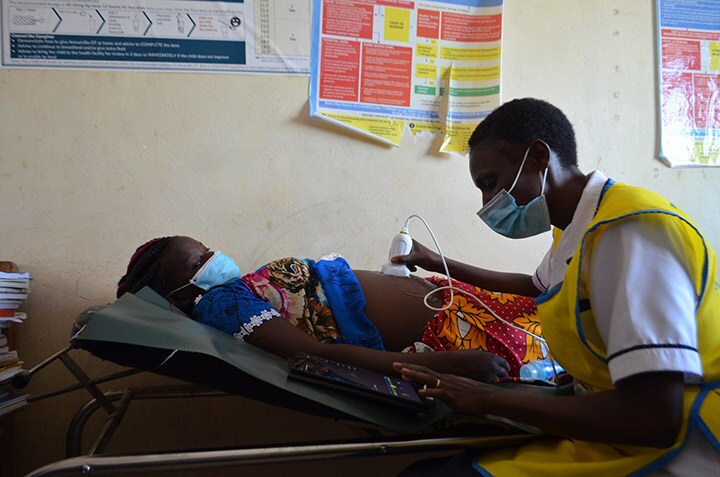The 76th session of the UN General Assembly (UNGA 76) opened on Tuesday, 14 September 2021, in New York City (US) with the session’s high-level General Debate starting on September 20 based on the theme of ‘Building resilience through hope to recover from COVID-19, rebuild sustainably, respond to the needs of the planet, respect the rights of people, and revitalize the United Nations’.
While COVID-19 has impacted many countries’ prosperity in terms of gross domestic product (GDP), the biggest impact on many people’s lives has been on their health. It not only applies to those unfortunate enough to have contracted the disease, but also to those with other conditions such as cancer who have had their diagnosis and treatment delayed or disrupted. While healthcare systems around the world are under immense pressure to deal with successive waves of COVID-19 and catch up on the care backlog, they are also facing a long-term challenge - how to create the resilient healthcare systems that will be needed to cope with future pandemics and climate change. That makes sustainability a key issue, because the world’s healthcare systems currently contribute around 4% of global CO2 emissions [1].
As a global leader in health technology committed to the United Nations Sustainable Development Goals (SDGs), Philips believes that the twin challenges of improving people’s lives and mitigating climate change are inseparable.
Expanding access to care, for example, will be much easier and more sustainable if the number of people requiring care is kept to a minimum. Prevention is better than cure, and applies as much to the health of the planet as it does to the health of the people who live on it. As an industry we therefore have a responsibility to act.
Philips’ purpose is to improve people’s health and well-being through meaningful innovation, improving 2.5 billion lives per year by 2030, including 400 million in underserved communities. We are equally committed to doing business responsibly and sustainably, respecting the needs of the planet as well as those of society in partnership with our stakeholders.

With UNGA 76 getting underway this week, we asked Jan-Willem Scheijgrond, Global Head, Government and Public Affairs at Royal Philips, how Philips plans to revitalize healthcare in a post-pandemic, climate challenged world. Q. With an ongoing pandemic and climate crisis that needs action, this year’s UNGA is about building resilience and rebuilding society more sustainably. What are your thoughts on this year’s theme?
A. The world’s healthcare systems are at the crossroads of multiple intersecting challenges - dealing with COVID-19 and its aftermath, the global rise in non-communicable diseases such as heart failure and type 2 diabetes, the growing risks to people’s health due to climate change, as well as mental health challenges. The recent publication of the latest Intergovernmental Panel on Climate Change (IPCC) report highlights scale of the climate change challenge. So one of the key questions at UNGA is how you build resilience into future healthcare systems. COVID-19 has demonstrated that simply spending more money is not the answer. Those countries that have fared best during the pandemic are those that have a holistic, joined up healthcare system. One in which primary care, secondary care, social care, and public health are closely connected top-to-bottom and well-orchestrated. Governments looking to build resilience into their healthcare systems to cope with future crises could well look to those countries for best-practice. However, to build resilience at affordable cost they will also need to embrace structural change in the form of digitization, transformative partnerships and innovative financing models. Q. How can the private sector help to build health system resilience? The private sector will play a crucial role in the collective effort required to build resilient global health systems. Governments will need to show strong leadership and undertake an orchestrated effort to bring all stakeholders to the table to drive decision-making. We can help strengthen health system capacity and deliver lasting impact by creating smart investment vehicles, growing health system efficiencies through digitization, and looking at new partnerships that leverage both public and private expertise. Q. Why are transformative partnerships so important? Transformative partnerships are fundamental to understanding local issues and end-user needs because there will never be a one-size-fits-all solution for building resilience into healthcare systems. So you not only need to choose partners with complementary strengths, you also need to choose partners that are actively involved in healthcare delivery at the local level. A good example is the long-standing partnership between Philips and Amref Health Africa, which is already driving and improving healthcare access across Africa. To achieve scale and impact, partnerships must also be partnerships of equals, with no single organization driving its own agenda. They must also be open to every player in the ecosystem that can help drive the transformation, including the communities they are planning to serve. Done properly, partner relationships give organizations enormous transformative power, not only to achieve the goals of the partnership, but also to grow and innovate as organizations in themselves.

Q. In a newly developed white paper you argue that one of the keys for building resilience is enabling sustainable business models that take a new approach to financing. A. For lasting healthcare impact, it is necessary to unlock investments and ensure that funded health services are efficient, effective, and affordable, especially at the primary care level where up to 90% of all healthcare services can be delivered if the required investment is in place. However, in terms of private-sector funding, we see that the business case for investing in primary healthcare is often very weak. Therefore, business cases need to be strengthened with long-term horizons in order to recoup investments at the low margins characteristic of primary healthcare service delivery models. Political risk factors from such investments must also be mitigated. To break the impasse and unlock much needed investment in better primary healthcare in underdeveloped parts of the world such as sub-Saharan Africa, we propose a ‘double blended’ finance approach that cushions the investment and early-stage development risk. Philips and Total Impact Capital are currently partnering with the Health Finance Coalition to convert this vision into an initial double blended investment vehicle aimed at making quality primary healthcare affordable and accessible across Africa by making it investable. As the world builds resilient healthcare systems that also achieve universal health coverage, there is little doubt that private return-seeking capital as well as development finance capital can be blended smartly to catalyze health system improvements at scale. More about Philips’ approach to healthcare system resilience and sustainability
The following resources highlight the ways in which Philips committed to help achieve the United Nations Sustainable Development Goals, addressing SDG3 ‘Good health and well-being’, SDG12 ‘Responsible consumption and production’, and SDG13 ‘Climate action’.
Share on social media
Topics
Contact

Joost Maltha
Philips Global Press Office Tel: +31 6 10 55 8116
You are about to visit a Philips global content page
Continue












